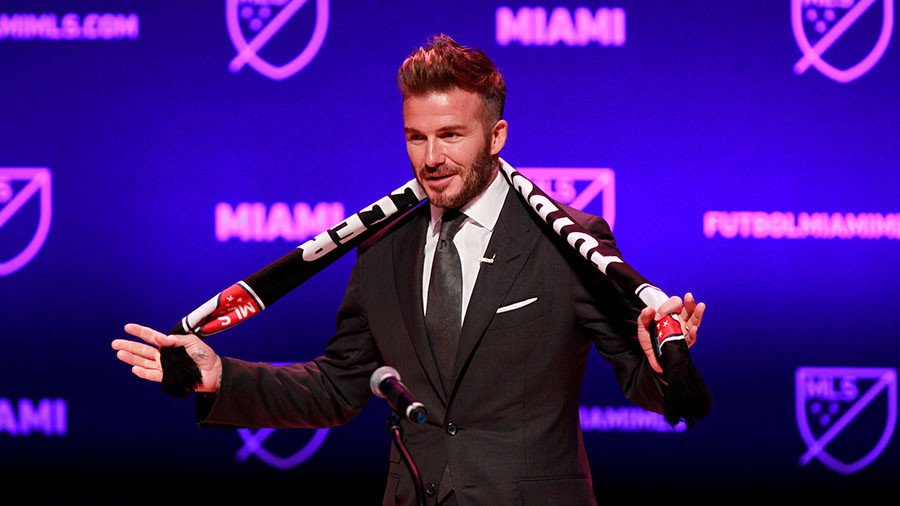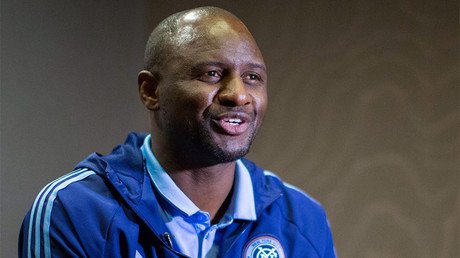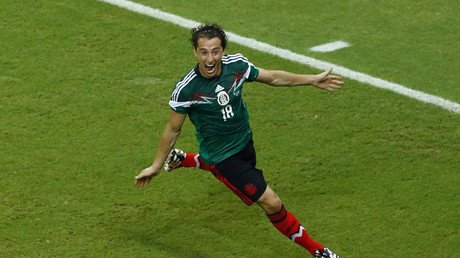'It’s not an economic catalyst’: David Beckham’s proposed MLS franchise polarizes opinion

David Beckham’s star appeal transcends many fields; soccer and fashion being just two of those. But the Englishman’s latest foray into soccer franchise ownership in Miami has been met with a surprisingly frosty reception.
The Miami sports scene is arguably most famous for its NBA representatives Miami Heat, or maybe its Miami Dolphins NFL team. The Florida Panthers ice hockey outfit, a sport that seems out of place on the peninsula state, certainly garners more attention than soccer.
Stan Collymore Show 1:30pm & 5:30pm, Sky 512, Freeview 234, Freesat 206.In Miami to look at what Beckham's team will bring to Florida + a heartwarming trip to the Scilly Isles to see the World's smallest football league, 2 teams battling 30 times a season over 60 years! pic.twitter.com/tWvTgTnm11
— Stan Collymore (@StanCollymore) February 23, 2018
Beckham, who played in Major League Soccer (MLS) for LA Galaxy, now has designs on establishing a franchise on an area of land in Overtown, just north of Downtown Miami, a largely African-American area. It is one of the most deprived parts of Florida, and Beckham’s plan includes basing the project at a 9 acre area in its center, creating between 40 and 60 jobs.
Why then, are some locals reluctant to see the project based in Overtown? Resident Amanda Hand says the problem lies not in what the project promises, but that it will ultimately deliver not enough.
“It does not act as an economic catalyst. We need the daily activity that really is an economic generator. Forty good days a year is not going to do it. Fifty jobs on 9 acres, that’s not going to do it,” Hand says.
Nine acres may not seem much, but it is a sizeable chunk of Overtown. To its residents, those nine acres could generate money, jobs, or housing, and the community is keen not to let the project stray over into a millionaire’s playground that offers little back to locals. Overtown needs a hive of business activity, rather than a dormant site active just for a few seasons.
“You need 365 days of activity. That’s what we want for this site, we’re not anti-development, we’re not anti-soccer. The fact of the matter is: this is not the area where people are going to be paying $100-plus to go to a soccer game,” Hand continues.
“We’re looking for commercial uses, we’re looking for educational uses, we’re looking for workforce housing, we’re looking for a real livable community. It’s happening in Miami, it’s happening right here, and we believe this site is special and it deserves the best.”
Other locals are worried the project will gentrify the area and drive out the African-American population into further poverty, and that it faces “considerable opposition” from locals.
Despite the resistance of Hand, others seem more optimistic at the potential of seeing an MLS franchise in Miami. A campaign has long been voiced by the Southern Legion, the supporters group of Fútbol Miami MLS, to have an MLS team in the city.
“The people of #Miami have been waiting for this for a long time and I’m proud to be a part of it,” David Beckham #FutbolMiamiMLSpic.twitter.com/jN6O8an3ry
— Fútbol Miami MLS (@futbolmiamimls) February 5, 2018
Kay Murray is a British journalist in Miami, and who worked for Real Madrid TV during Beckham’s tenure at the Spanish giants. She believes that the franchise can provide community grounding, as long as it remains close to community values.
“You have to make it accessible to everybody here. It can’t just be some middle-class sport,” Murray enthuses. “You have to be able to reach the people who actually want to see this. Who have that soccer culture already ingrained in them. So the ticket prices are going to be really important. The accessibility as well.”
Time will tell whether Beckham’s star power will work its magic in Miami. If it is to, it will have to win over the population of one of the United States’ poorest, yet closest-knit communities.














